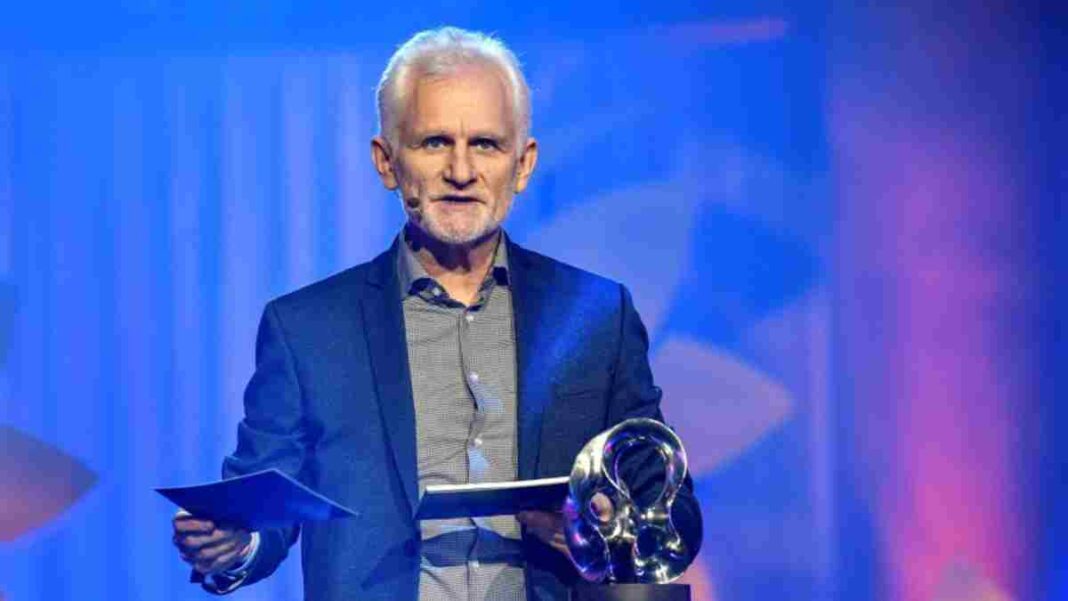BELARUS: Ales Bialiatski, a human rights activist and winner of the Nobel Peace Prize, was sentenced to a 10-year prison term on Friday by a court in his native Belarus. He was found guilty of smuggling and funding “actions grossly violating public order,” said the Viasna human rights organization.
Bialiatski, who is 60 years old, won the Nobel Peace Prize in October for his work to promote democracy and human rights in Belarus, a country where President Alexander Lukashenko, a loyal ally of Russia, has ruled with an iron fist for nearly 30 years, putting his opponents in jail and kicking them out.
Video from the crowded Minsk court showed Bialiatski, who co-founded the human rights organisation Viasna (Spring), appearing solemn with his hands behind his back as he and his co-defendants viewed the proceedings from a courtroom cage.
Bialiatski was arrested in 2021, along with three other people who were also accused of funding protests and moving cash. Belta, Belarus’s official news source, confirmed that the judge had given long prison sentences to all of the men, with Bialiatski getting ten years. He refuted the charges against him, stating they were politically motivated.
Sviatlana Tsikhanouskaya, a leading exiled opposition figure from Belarus, stated that Bialiatski and the other three dissidents had been wrongfully convicted and called the court’s decision “appalling.”
“We must do everything to fight against this shameful injustice & free them,” she wrote on Twitter.
The other three men found guilty were Dmitry Solovyov, who received an eight-year sentence but was not present in court; Valentin Stefanovich, who received a nine-year sentence; and Vladimir Labkovich, who received a seven-year sentence.
On Twitter, U.S. Secretary of State Antony Blinken demanded the men’s immediate release and called the court decision a “sham” and “an attempt to suppress democracy and human rights in Belarus.”
Josep Borrell, who is in charge of EU foreign policy, said that their trials were an attempt to silence them, which he thought would fail.
“Lukashenko will not succeed. Their call for freedom is loud, even behind bars,” Borrell stated.
Ravina Shamdasani, the spokesperson for the U.N. High Commissioner for Human Rights, said at a briefing in Geneva that the trial was troubling and that the U.N. was worried about “the lack of fair trial proceedings and access to an independent judiciary in Belarus.”
According to her, this made human rights advocates vulnerable to being charged with a crime for their lawful actions. Shamdasani said, without giving more details, that by the end of 2022, there would be at least 1,446 people in jail, including 10 children, who had been charged with a crime or were still being charged.
Bialiatski was a well-known Soviet-era dissident and one of the hundreds of Belarusians who were jailed after months of anti-government protests that began in the summer of 2020 and went on into 2021.
His co-founded organisation, Viasna, played a key role in providing those who were imprisoned with legal and financial support. Massive protests were held following the declaration of Lukashenko as the winner of the 2020 presidential election, an outcome that the opposition and Western nations deemed to be rigged.
Also Read: El Salvador Moves Suspected Gang Members to ‘Mega Prison’ amid War on Crime



